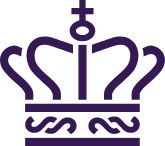Indictment
When the police have completed their investigation, the prosecution service will decide on any further action in the case.
A victim in a criminal case cannot decide whether you will be prosecuted. This is a decision for the prosecution service.
The prosecution service will bring formal charges if the prosecutor finds that there is sufficient evidence for a conviction. When formal charges are brought, the case is sent to the court along with an indictment listing the charges. This means that you are no longer provisionally charged but now formally charged. You will receive a copy of the indictment.
When the court has received the indictment, it sets a trial time and date for the case to be heard. When the date has been set, you and any other defendants, as well as the witnesses in the case, will receive a summons to appear in court.
Read more about the court proceedings.
Guilty plea
If you plead guilty to a crime with which the police have provisionally charged you, the case may be heard as a guilty plea case.
The prosecution service will send the case to the court with a request for a court hearing in which the criminal offence is described. You will receive a copy of the request for a court hearing.
When the court has received the request for a court hearing, a trial date and time is set for the case to be heard. You will be summoned to appear in court.
If you plead guilty, and the case can be settled by payment of a fixed penalty, the case will usually not go to court.
Read more about fixed penalty cases.
Read more about other ways a case not sent to court may end.

